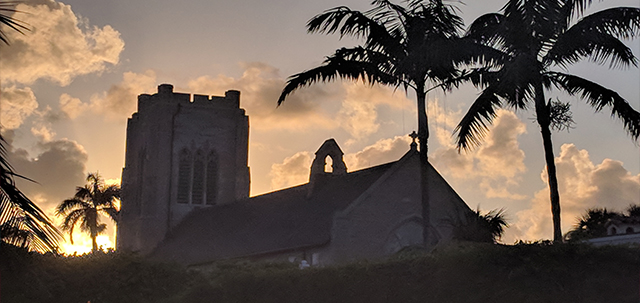Dear Friends,
I’m not a big theme park guy. While I can see the attraction, I could do without the crowds, the omnipresent merchandising, and the prices. Now, you may not know this, but there’s a pretty popular theme park about two and a half hours north of us. I hadn’t been to Disney World since our boys were 6 and 8. I agreed to go, but insisted they be old enough to remember it — since I wasn’t going back.
Yet early this week I found myself wandering through the Magic Kingdom, going on rides, walking through exhibits, waving to Mickey Mouse, and watching fireworks. Without children in tow! This is what happens when you have a couple of seminary classmates who live in Florida, one that retired to Orlando, and all of whom are big Disney fans. Which is how I suddenly found myself floating through “It’s a Small World After All” with Bryna, two priests, and another Mouse-loving clergy spouse.
Disney World claims to be “The Most Magical Place on Earth.” For many people — there were so many people — it clearly is. The suspension of belief and the unmooring of reality is a welcome antidote to the sometimes painful actualities of life.
For people of faith, we’re ultimately drawn not to “magic” but mystery. And on Trinity Sunday, which we celebrate this weekend, we are pulled into the most profound mystery: the fullness of God. As we reflect upon God as Father, Son, and Holy Spirit, it’s less helpful to try and parse out the interplay between these three persons of the Trinity, and more spiritually rewarding to simply revel in the grand mystery of God.
The late theologian Catherine LaCugna wrote, “The mystery of God, indeed, the mystery of existence, is the mystery of communion of God with all, all with God. The heart of Christian life is the encounter with a personal God who makes possible both our union with God and communion with each other.”
In the end, God is love, God is mystery, God is life.
Peace,
Tim+

